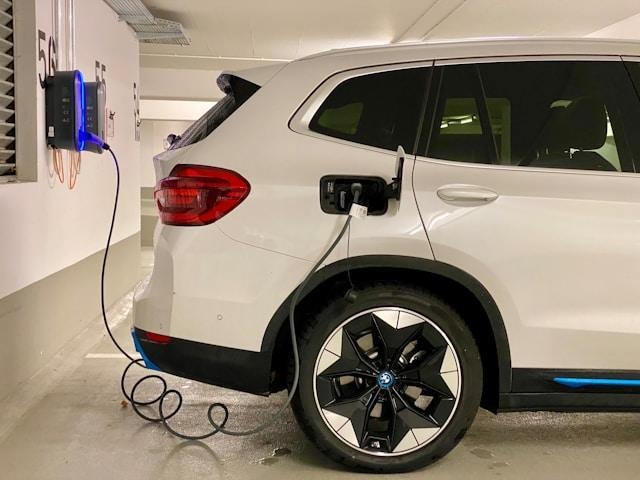Table of Contents
Rethinking the Value of Used Vehicles
Debunking Myths: Are Used Cars Reliable?
The Crucial Role of Pre-Purchase Inspections
Steps to a Smart Used Car Purchase
What to Expect in a Thorough Vehicle Inspection
Spotting Red Flags and Negotiating Wisely
Comparing Certified Pre-Owned and Standard Used Vehicles
Final Thoughts: Making Informed Choices
Rethinking the Value of Used Vehicles
Over the past few years, used vehicles have seen a remarkable surge in popularity. With new car prices soaring to record highs, more buyers are turning to the pre-owned market to find value and reliability. This shifting mindset is about more than just saving money—savvy shoppers now recognize that today’s used vehicles offer advanced safety features, modern tech, and years of dependable service at a fraction of the cost of new models.
Dealerships such as Turner Chevrolet in Harrisburg have recognized this trend and responded by offering a diverse range of high-quality used vehicles, often making the process of finding a well-maintained, affordable car easier than ever for consumers.
The used car market is growing as buyers seek affordable alternatives to new vehicles. Enhanced transparency, inspections, and verification, particularly for certified pre-owned (CPO) cars, provide consumers with greater confidence. Beyond cost savings, used cars can offer lower insurance premiums, slower depreciation, and access to higher-end features, with third-party inspections and online vehicle histories making informed purchasing decisions easier.
Debunking Myths: Are Used Cars Reliable?
For years, there’s been a lingering stigma that used vehicles are inherently unreliable or risky. However, vehicle quality and durability have dramatically improved over the past decade. Today’s cars are engineered to last longer and often change hands with many years of service still ahead. Billions of miles of reliability data, compiled by consumer organizations and automotive industry analysts, consistently show that major brands deliver long-lasting performance well beyond their first owner.
Many used vehicles are also available as manufacturer-certified, having passed stringent multi-point inspections and receiving extended warranties. Even standard used cars can be evaluated by trusted third-party inspectors, making reliability and transparency routine parts of the buying process.
Steps to a Smart Used Car Purchase
Begin your search by researching reputable makes and models and creating a shortlist that matches your needs, budget, and preferences. Detailed reviews, online reliability rankings, and dealership inventory listings will help narrow the options. Carefully review each candidate's maintenance history and accident reports, looking for regular service records and transparent ownership.
What to Expect in a Thorough Vehicle Inspection
A comprehensive used vehicle inspection encompasses several key areas to ensure you're making a sound purchase. The exterior should be checked for paint consistency, dents, rust, signs of previous bodywork, and overall finish. The interior requires examination for excessive wear on seats, controls, upholstery, and electronics. According to Consumer Reports, a thorough evaluation is crucial for uncovering hidden issues and assessing the vehicle's overall reliability. The mechanical assessment covers vital components, including the engine, transmission, suspension, and brakes, for leaks, unusual wear, or noises, as well as operational integrity.
Don’t overlook the undercarriage, where rust, fluid leaks, and structural damage often hide. Certified mechanics and independent inspectors utilize specialized diagnostic tools to identify faults that may elude even the most discerning buyers, underscoring the importance of a professional review before making a purchase.
Spotting Red Flags and Negotiating Wisely
Classic red flags to watch for during the inspection process include mismatched paint, evidence of flood or fire damage, odd smells, warning lights, abnormal tire wear, and inconsistent or missing maintenance records. These indicators may reveal past neglect or hidden issues that could become expensive headaches down the road.
An honest inspection report is a powerful tool for negotiation, allowing buyers to transparently discuss flaws, required repairs, or pricing adjustments with the dealer or seller. Knowledge is power; using clear documentation, you can negotiate reasonably and avoid overpaying for potential problems.
Comparing Certified Pre-Owned and Standard Used Vehicles
Certified pre-owned (CPO) vehicles stand out for undergoing manufacturer-backed, multi-point inspections, often including reconditioning and extended warranties that exceed those of a standard used car. This added value makes CPO vehicles a strong choice for anyone wanting additional peace of mind, especially for late-model cars with advanced technology and safety systems.
However, “certified” is not always the best option for every buyer. If the cost differential is significant or you plan to upgrade soon, a well-maintained, standard used car that has cleared a thorough independent inspection might deliver better overall value.
Final Thoughts: Making Informed Choices
The modern used car market offers unprecedented choice, value, and quality for buyers willing to be proactive and thorough. Leveraging professional inspections, transparent records, and trusted dealership networks leads to safer, smarter vehicle purchases.
By combining careful research with independent verification, buyers can enjoy the financial advantages of a used vehicle—without the worry of hidden surprises—while supporting their transportation needs for years to come.




Want to add a comment?